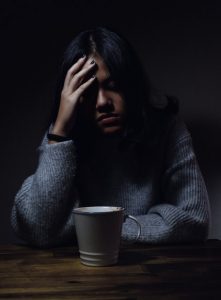What is a Mood Disorder in Clinical Study?
 A mood disorder is a mental health problem that primarily affects a person’s emotional state. It is a disorder in which a person experiences long periods of extreme happiness, extreme sadness, or both. It is normal for someone’s mood to change, depending on the situation. However, to be diagnosed with a mood disorder, symptoms must be present for several weeks or longer. Mood disorders can cause changes in your behavior and can affect your ability to deal with routine activities, such as work or school.
A mood disorder is a mental health problem that primarily affects a person’s emotional state. It is a disorder in which a person experiences long periods of extreme happiness, extreme sadness, or both. It is normal for someone’s mood to change, depending on the situation. However, to be diagnosed with a mood disorder, symptoms must be present for several weeks or longer. Mood disorders can cause changes in your behavior and can affect your ability to deal with routine activities, such as work or school.
In this article, we’re going to talk about the common disorders in human life: depression and bipolar disorder. So we will have a look at these disorders and possibly their subtypes.
Common Disorders
- Depression(major or clinical depression). Depression is a common mental disorder. Grief or sadness is a typical response to a traumatic life event or crisis, such as the death of a spouse or family member, loss of a job, or a major illness. However, when the depression continues to be present even when stressful events are over or there is no apparent cause, physicians would then classify the depression as clinical or major depression. For a person to be diagnosed with clinical depression, symptoms must last for at least two weeks.
- Bipolar disorder (manic-depressive disorder) Bipolar disorder is defined by swings in mood from periods of depression to mania. When someone experiences a low mood, symptoms may resemble those of a clinical depression. Depressive episodes alternate with manic episodes or mania. During a manic episode, a person may feel elated or can also feel irritable or have increased levels of activity.
Causes of mood disorders
There may be several underlying factors, depending on the type of the disorder. Various genetic, biological, environmental, and other factors have been associated with mood disorders.
Risk factors include:
- Having family members who have mood disorder
- If one had been diagnosed with mood disorder before
- Trauma, stress or major life changes in the case of depression
- Physical illness or use of certain medications. Depression has been linked to major diseases such as cancer
Symptoms of common mood disorders
Symptoms depend on the type of mood disorder that an individual has.
Below are symptoms of major depression:
- Spending time sad on a daily basis
- Not having energy and sometimes feeling inactive
- Feeling like you don’t have value and loosing hope
- Constantly loosing appetite and overeating
- One can either loose or gain weight
- Slowly losing interest in engaging in activities that used to make you happy
- Spending most of the time sleeping
- Having suicidal thoughts
- Having a hard time concentrating or staying focused
Bipolar disorder symptoms on the other hand can include both depression and hypomanic. Below are symptoms of manic episodes:
- Having so much energy and feeling elated
- Rapid speech or movement
- Feeling agitated, restless, or easily irritated
- Risk-taking behavior, such as spending too much money or driving recklessly
- Engaging in so many activities and sometimes trying to do them at once
- Racing thoughts
- Lack of sleep or insomnia
- Feeling jumpy or on edge for no apparent reason
How to treat mood disorders
Deciding on which treatment is perfect for mood disorder will depend on the specific illness and symptoms that are present. Usually, therapy involves a combination of medication and psychotherapy. This is also referred to talk therapy. Therefore, a psychologist, psychiatrist or other healthcare professional may conduct therapy sessions.
Medications to treat depression and/or bipolar disorders
- Antidepressants – Many different medications are available to treat depression and depressive episodes of bipolar disorder. Some of the most widely used drugs are selective serotonin reuptake inhibitors (SSRIs).
- Mood stabilizers – These medications help to regulate the mood swings that occur with bipolar disorder or other disorders. They reduce abnormal brain activity. Mood stabilizers may also be prescribed along with antidepressants in some cases.
- Psychotherapy (talk therapy)- Patients with depression and other mood disorders may benefit from various types of psychotherapy or counseling sessions.
- Brain stimulation therapies- Brain stimulation therapies are thought to work by causing changes in the chemicals in the brain that are known to be associated with symptoms of depression and bipolar disorders.
One of the treatment approach that has been seen to be helpful is psychotherapy. This approach is usually used together with medication or brain stimulation therapy. Minor forms of depression can be treated with psychotherapy alone. Brain stimulation therapies are usually tried when other treatment options have not been successful, in people with severe symptoms, and in those who cannot tolerate the side effects of drug therapy. Every therapy has its potential role, as each patient with a mood disorder is unique. Seek help immediately if you feel suicidal or have thoughts of harming yourself or others.

